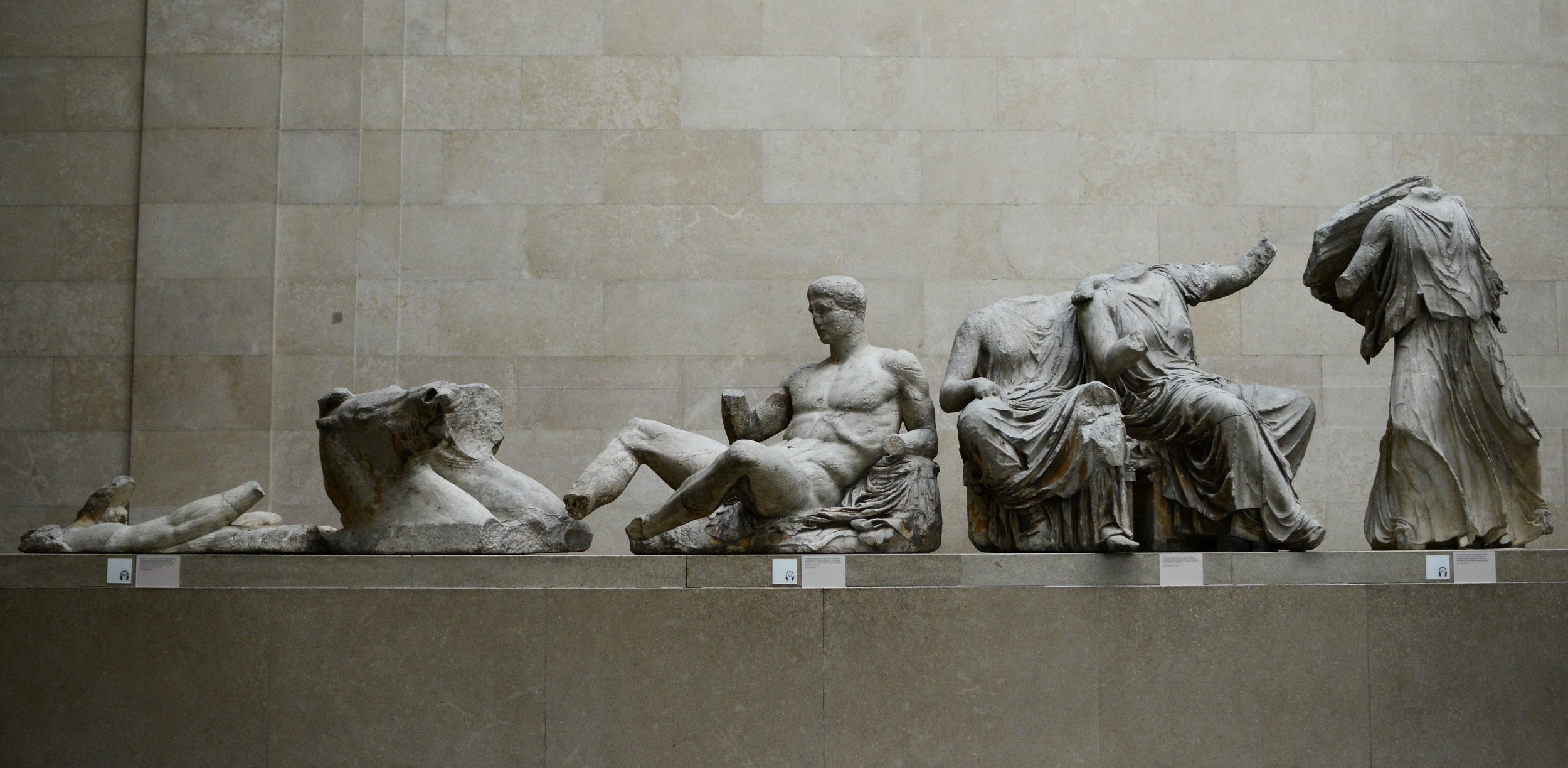
The Greek government is not giving up in its quest to reclaim the Elgin marbles from the British Museum, where they have resided for almost two centuries.
Greece hopes that forging new strategic alliances might engender change. One option is to take the British Museum to the European Court of Human Rights (ECHR). Alternatively, the southeastern European country could appeal to the United Nations Educational, Scientific and Cultural Organization (UNESCO) and apply for an advisory judgment from the International Court of Justice (ICJ) in a bid to win back the marble statues.
"We are trying to develop alliances which we hope would eventually lead to an international body like the U.N. to come with us against the British Museum," Greece's culture minister, Aristides Baltas, revealed in an interview reported in The Guardian on Sunday. "If the U.N. represents all nations of the world and all nations of the world say 'the marbles should be returned' then we'll go to court because the British Museum would be against humanity. We do not regard the Parthenon as exclusively Greek but rather as a heritage of humanity."
The Elgin marbles, known around the world as the Parthenon marbles, are a collection of Classical Greek marble sculptures. Between 1801 and 1805 they were acquired by Lord Elgin, a Scottish nobleman and the ambassador to the Ottoman Empire, which included Athens. The marble sculptures were part of the Parthenon, built about 2,500 years ago as a temple to the Greek goddess Athena. The building became an archeological ruin in the late 17th century, when it was destroyed in an explosion during the Venetian siege of Athens.
Lord Elgin sold the marble sculptures to the British Museum in 1817 for £35,000 (about $4 million today) following a Parliamentary Select Committee enquiry that ruled his acquisition of the marbles was legal.
The British Museum believes that the marbles belong in the U.K. where they "are seen by a world audience and are actively studied and researched to promote worldwide understanding of ancient Greek culture."
However, campaigners who deem the acquisition illegal, demand that the marbles should be returned to Athens, referring to June 7, 1816 as "the black anniversary" when the British government officially bought them from Elgin.
However, Baltas admits that the legal route is unlikely to guarantee the successful repatriation of the marble statues to Athens.
"Courts do not by definition regard [any] issue at the level of history or morality or humanity-at-large. They look at the laws," he added. "As there are no hard and fast rules regarding the issue of returning treasures taken away from various countries, there is no indisputable legal basis."
The New Zealand-based International Parthenon Sculptures Action Committee, which campaigns for the return of the marbles to Greece, heightened existing tensions between Greece and the U.K. this weekend. The organization unveiled a poster of a naked male statue just moments away from the British Museum in Holborn, central London, over the weekend. "We gave you philosophy, democracy, logic, drama, comedy, justice… Please give us back our marbles," read the tactfully placed text.
"There is no point any longer in taking the gentle approach because that has failed," said Alexis Mantheakis, chairman of the committee. "The British have never given anything back, be it colonies or artefacts, without pressure. To ignore that fact is to undermine the chances of any success in the campaign for the return of the Parthenon sculptures."
Uncommon Knowledge
Newsweek is committed to challenging conventional wisdom and finding connections in the search for common ground.
Newsweek is committed to challenging conventional wisdom and finding connections in the search for common ground.
About the writer
To read how Newsweek uses AI as a newsroom tool, Click here.








